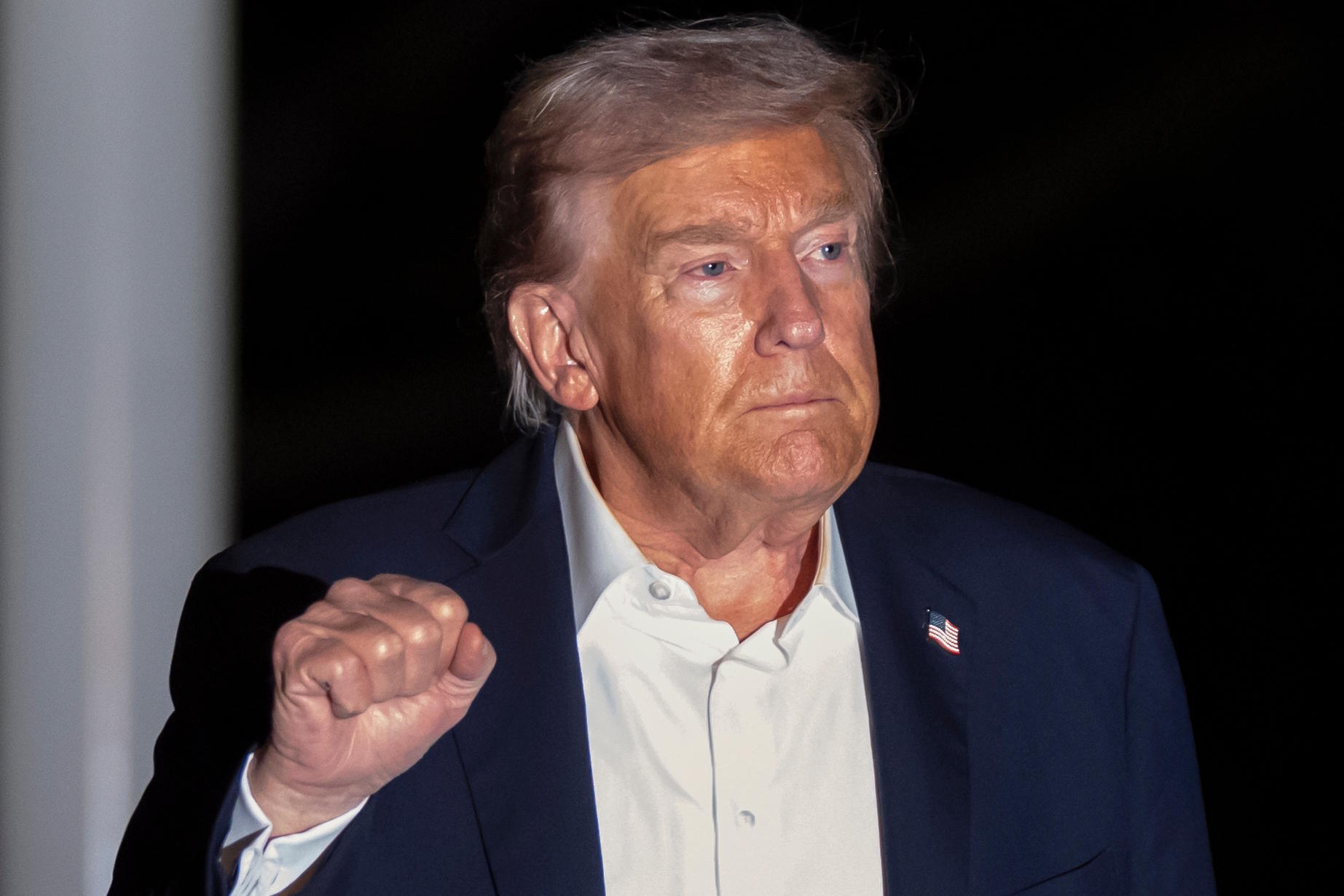"We finally have peace in the Middle East. Many people said that peace would not be possible, and today it is happening. It is happening sooner than we thought," expressed the U.S. President with undisguised pride upon his arrival in Sharm el-Sheikh (Egypt). "Israel, with our help, has achieved everything that can be accomplished by the force of arms. Now is the time to turn these victories against terrorists on the battlefield into the ultimate prize of peace and prosperity for the entire Middle East," he emphasized before the Israeli Knesset.
"I have made many deals in my life, and this is one of them," highlighted the American. Of course, this is not just any deal. The 20-point plan that has already achieved a ceasefire, the release of Israeli hostages - in exchange for the release of 2,000 Palestinian prisoners - and the multilateral effort to consolidate the peace advocated by Trump, is not only the most significant milestone in attempting to resolve the Israeli-Palestinian conflict since the Oslo Accords but also lays the groundwork for the reconfiguration of the entire Middle East, with international leaders acknowledging the leadership of the White House tenant.
Trump stated in the Israeli State Parliament that yesterday marked "the moment when everything begins to change, and change much for the better" in the Middle East, defining what is happening as "the historic dawn of a new Middle East." To the extent that he even encouraged Iran to join him, although he then warned that those who try to destroy Israel are doomed to "bitter failure."
The historic moment was led by the U.S. and Egypt, along with Qatar and Turkey, the two countries now guaranteeing the agreement and previously mediating in the tortuous negotiation between Israel and Hamas. Trump wanted to showcase his great diplomatic success with a signature in Sharm el-Sheikh that captured global attention, albeit with hours of delay according to the planned schedule, as Trump's arrival from Israel, where he was greeted by crowds early in the day, was acclaimed by the entire Israeli political class. He was able to meet with some hostage relatives and delivered a grandiloquent speech before the Parliament, causing a significant delay.
This caused all the leaders who had traveled to Egypt to participate in the historic day to wait unavoidably for the great leader. Their watches marked the hour of peace, making them wait. "We have waited two years for peace, it doesn't matter to wait one more hour," said diplomatic sources while Trump savored every minute of glory.
All leaders passed the time in a common room, conversing among themselves. With plenty of time, a sort of parallel summit could be held in which the Egyptian President, Abdel Fattah al-Sisi, met with European leaders such as Macron, Meloni, Starmer, Erdogan, and Pedro Sánchez, asking them to support Egypt and Jordan in the training and formation of Palestinian police as part of the roadmap for the day after in Gaza.
The U.S. President monopolized the spotlight, prominence, discourse, and also praise. He missed out on the Nobel Peace Prize, but in this city famous for diving and spas, he was recognized by the attending leaders. "I hope that the U.S. President also exerts influence over the Russian government as he has done with those involved in the region," declared German Chancellor, Friedrich Merz. "The role of the United States and its president has been crucial, and I believe that should be acknowledged," added José Manuel Albares, Spain's Minister of Foreign Affairs.
The signing of peace lays a foundation. But now, the next chapters are yet to be written. The host of yesterday's meeting, Egyptian Al Sisi, emphasized that the plan must be fully implemented and its goal is to open "the necessary horizon" to materialize the two-state solution, which includes the creation of an independent Palestinian state. Something that the government of Israeli Prime Minister, Benjamin Netanyahu, vehemently opposes, leading many to wonder if Trump has real reasons to exhibit such optimism.
